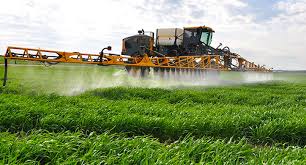Editor note: This article by Elizabeth Graser-Lindsey was published in The Capital Press in Salem, Oregon several days ago. It is being re-printed here with her permission and at our request.
You may have heard that Robert F. Kennedy Jr. is running for president as an independent and has about a fifth of voters supporting him nationwide. His support is greater in swing states, averaging 24%. He’s in the lead — ahead of Trump and Biden — among voters under 45 and independents, now nearly half the electorate.
Kennedy grew up on Hickory Hill farm near Washington, D.C., during the school year and was a 4-H kid. He spent days at the barn, riding horses, raising milking cows and goats, besides keeping a menagerie of other animals.
But how does Kennedy view issues that affect farmers and ranchers in the Pacific Northwest?
Kennedy wants to end the corporate capture of the USDA and other governmental agencies (the revolving door of employees between corporations and government) which interferes with these agencies policing and regulating corporate giants such as Cargill, Monsanto, Pilgrim, Smithfield, Tyson, Purdue, etc.
He opposes how mega corporations consolidate the agricultural industry, reducing competition, dropping prices below the cost of production, and controlling farm practices. He shares:
“[In North Carolina] Smithfield dropped the price of pork from sixty cents a pound to 2 cents a pound. It put out of business all 28,000 independent hog farmers in the state…, and it replaced them with 2,200 factories, all of them either owned by Smithfield or contracted to Smithfield … [the farmers] lose all control;… Smithfield dictates all their farming practices… They [Smithfield] control now 80% of hog production in North Carolina. Because they dropped the price in North Carolina, Iowa had to adopt the same system… They ended up taking control of 80% of hog production in our country. Then they sold themselves to China.”
Kennedy supports independent free holders, the widespread ownership of land by family farmers; similarly, he supports small business. He sees them both as having a stake in our democratic system and contributing back to the community. “We’re going now from being an ownership society to being a rental society and, when we do that, we go from being citizens to being subjects,” he says.
Kennedy opposes how short-term interests have replaced long-term productivity and economic viability of farms, locking farmers in a system from which nobody can escape. He says, “I have been on farms all over Iowa and Kansas where farmers can’t drink from their own wells.” Similarly some groundwater under Umatilla and Morrow counties is tainted by nitrates, a chemical linked to cancer and other serious illnesses.
He opposes using eminent domain to route privately owned CO2 pipelines across Iowan farms. He denies claims that pipelines, headed to North Dakota fracking fields, would benefit climate. CO2 pipelines are particularly susceptible to corrosion and odorless leaks can harm and suffocate people, he explains.
He knows some North Dakotan farmers are eager for wind turbines to supplement their modest farm income. He supports upgrading the transmission grid. Eastern Oregon has the same potential.
Kennedy helped litigate a $289M win against Monsanto; the jury decided a groundskeeper got cancer from glyphosate in Roundup. The scientific evidence had to reach the Daubert legal threshold (about 20 scientific papers showing a link between exposure and ailment) for the judge to allow a trial. Monsanto was found to have acted with malice and negligence in failing to warn consumers. The 2022 movie “Into the Weeds” depicts the case. Parent company Bayer subsequently agreed to pay $10 billion to settle tens of thousands of similar U.S. cases with gardeners. Because farmers use multiple products, a causal relationship has not been proved in a case.
Kennedy understands the importance of keeping livestock on the land: “The best thing we can do for climate is to have wholesome, rich soil. And the best way to aerate the soil and to make sure it’s healthy is by having ungulates [hooved herbivores such as cows] on it who are tearing up the earth with their hooves and spreading manure. … When it’s a healthy soil, it’s absorbing a lot more carbon.… It helps rainwater to permeate the land rather than runoff across the surface.”
Kennedy knows the government is addicted to bad practices: “It’s a perverse incentive system to overuse poison to compete with neighbors. We need to change the incentives.” In the interest of farmer health and economic well-being, long-term soil health and consumer health, Kennedy intends to incentivize the transition to cover crops, building healthy soils and regenerative and organic agriculture.
He is against a death tax for farms and is for reducing the regulatory burden. He wants to heal the partisan divide and he supports medical freedom. He will not take your guns away and has other ideas on solving violence. Long-form interviews and clips can be found at Kennedy24.com or on YouTube.


